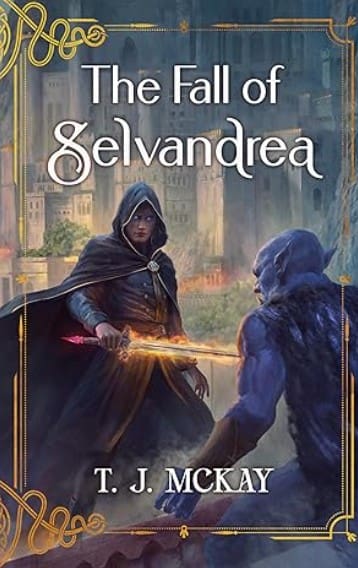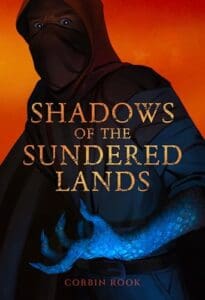
Synopsis:
Remember the wolf.
Remember what’s out there in the dark.
Valdaris was a middling artillery captain before his people fell to a conquering rival.
Then he fell further still, snatched from the battlefield by a ruthless cult and cast into the depths of ultimate evil.
Transformed by powers he can’t begin to understand, Valdaris seeks revenge on those who tried to destroy him. Instead, he’ll face monsters beyond his most terrifying nightmares. He joins with allies caught in the chaos of his war with evil, oblivious to his true nature and the darkness closing in on their world.
Full of dragons, monsters, found family, magical weapons, intense duels, and epic battles, The Fall of Selvandrea follows a vigilante’s quest against malice, greed, and the shadow within. Heroes and villains join against the rising dark, and against a tyrant whose schemes may destroy them all.
And from calamity’s ashes, a new power shall rise.
Review:
How do I review this book without spoilers? Why? Because it crosses genres ‒ doing so without preamble and as a huge crux to the whole story. I mean, huge. So, if you’re one of those people who don’t want to know, then just read the book’s synopsis, avoid any Goodreads reviews and jump to the end of this one. I’ll keep it out of my summing up paragraph.
Ready?
You sure?
Okay. So, this is epic fantasy, with an embedded element of flintlock fantasy woven into a world that embraces magic. There are fantastical creatures, including dragons. Yet ‒ and this is the part where you skip ‒ it also involves time-travelling science fiction with powerful weapons, cybernetics and ‘strains’ of infection.
Got that? And does the why and how of that work? Damn right it does. McKay has taken an ‘epic’ view of a world and its connections and woven a story that transcends genres. It comes as a shock, yet at no point does it feel out of place and as a reader, you find yourself accepting the revelation. Not only that, but you go on to enjoy how this complexity is laced into the story and the slow reveal of the history of the main character, Valdaris, and why he is seeking to change history.
I take my hat off to you, Tim McKay.
In terms of style, we have a blend of many POVs, most with their own agendas that warp and adapt as the story unfolds, or they are affected by the events around them. And this is where, perhaps, there becomes a disconnect. There are so many characters involved, whose positions manoeuvre and alter, that I didn’t feel as emotionally involved in the story as I would like to have been. The difficulty arises due to the scope. The shift from fight to fight, battle to battle, is fast, and because each POV change needs to add something to the story, moments of reflection, when the reader can think on past events and link them to how the character feels, are short, with time spent telling rather than showing.
However, those actions scenes are well written, fast-paced, and draw you in. The concepts of the swords used add interest as the inherent magic is often imbued through them, while the flintlock shines with the use of cannons and muskets amid the larger scale battles. McKay crafts a fight scene with care, and there is no doubt he loves his swords!
In the end, we have a story of epic scope, with factions vying internally, countries at odds, conquered people revolting, while amid this maelstrom, Valdaris has an even larger goal that transcends such squabbles. As the reader, we are thrown in and ride the rapids of events until we reach the end and pause at the top of the waterfall, waiting for what comes next. MacKay has crafted a deep, complex tale, and for those that love following the strands of a story, desperate to see where they all weave together, you will thoroughly enjoy McKay’s world. For those looking to connect to the characters, this is perhaps not the book for you.
And finally, some extra praise. I listened to the self-narrated audiobook version. I tip my hat once again. McKay’s consistency has to be applauded for such a long book.








Leave a Reply